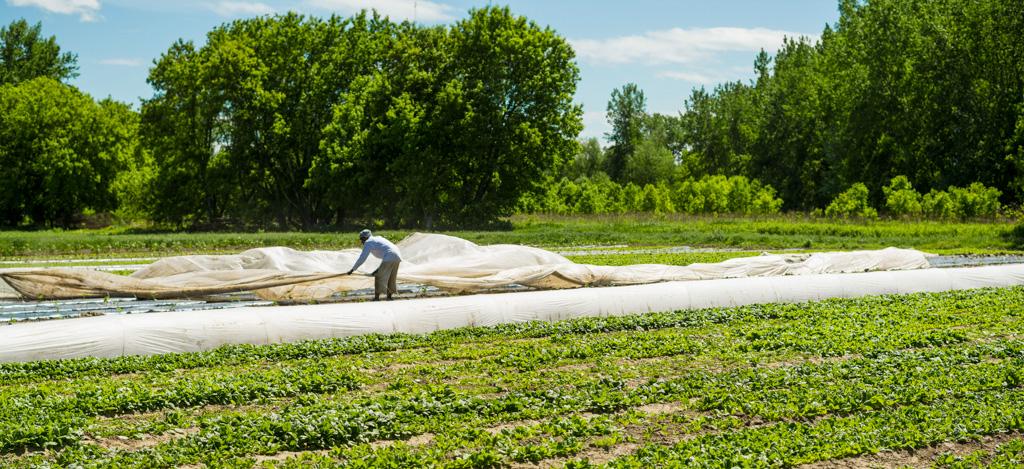On June 26th 2020, NOFA-VT staff brought the mobile oven to East Thetford to make pizza for the 45 field, greenhouse, education and farmstand staff who fill the bustling farm’s retail, kitchen and farm field spaces at Cedar Circle Farm. With 48 acres under cultivation, this large mixed vegetable and fruit farm boasts a busy year-round farm stand, a thriving education program, and a strong commitment to environmental practices.
Cedar Circle is a leader in soil-building and other climate-friendly practices like no-till vegetable production, which keeps carbon in the soil. The Cedar Circle team is highly involved in promoting organic and regenerative agriculture as a climate solution, showing up at the statehouse, hosting community events, and creating materials to help spread awareness and education of these techniques. Their relationship with the community is critical for us to raise a shared voice for interdependence.
“Our goal is always to work towards a closed loop,” said Taylor Henry, who is the Vegetable Production Manager. “We do everything we can to build up the nutrients in our soils, including planting diverse cover crops, making and applying rich compost onsite, and we fallow, or let rest, 50% of our fields annually.”
Nic Cook, the farm’s Director of Agriculture, echoes that sentiment, and shows me the results of a soil test, which isn’t required for organic certification, but helps them to determine the health and condition of their soils. He explains that the farm’s co-founders, Will Allen and Kate Duesterberg, have always been dedicated to regenerative practices, and have been involved in outreach and advocacy to increase their use since they bought the farm in 2001.
“NOFA-VT should continue to play a leading role in pushing for holistic philosophies and regenerative practices,” said Nic, who has worked closely with NOFA-VT’s Policy Director, Maddie Kempner, on the VAAFM’s Payment for Ecosystem Services (PES) Working Group to recommend financial incentives designed to encourage farmers in Vermont to implement agricultural practices that improve soil health, enhance crop resilience, increase carbon storage and stormwater storage capacity, and reduce agricultural runoff to waters. Nic also talked about the organic certification process, which he’s been involved with since the farm was certified by Vermont Organic Farmers in 2003. “It’s incredibly important, to have a verified, third party certification of our practices. It can be difficult in the beginning, with the paperwork and all, but it’s worth it,” says Nic.
Eric Tadlock, the Executive Director of Cedar Circle, says that the farm is in a period of transition, as Will and Kate are passing the reins to the next generation of farm managers. They are also preparing to transform the business into a non-profit organization, in order to fully embrace their mission to “engage the community to develop and share practices that promote regenerative agriculture, good health, and a resource-rich environment.”
“In addition to our sustainable farming practices, we focus on cultivating the next generation of conscientious consumers with our many educational programs,” said Eric.
Although somewhat restricted during the pandemic, in a normal year the farm is always open and accessible to visitors, who come to buy and pick vegetables, berries, and flowers, and enjoy lunch at the cafe. Visitors can roam the greenhouses and the fields, and take a walk along the Connecticut River which borders the farm’s infamous pick-your-own strawberry fields.

